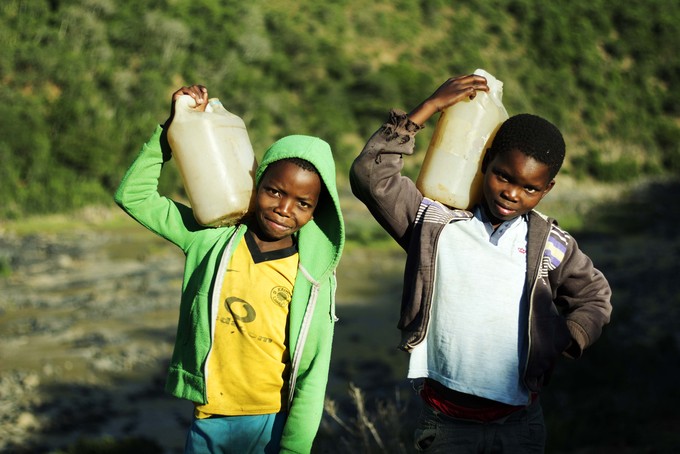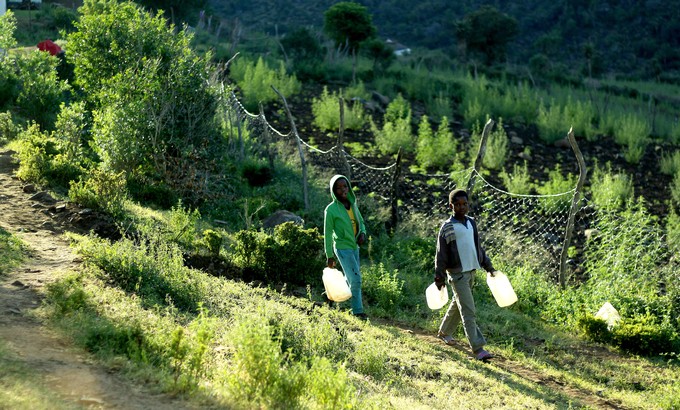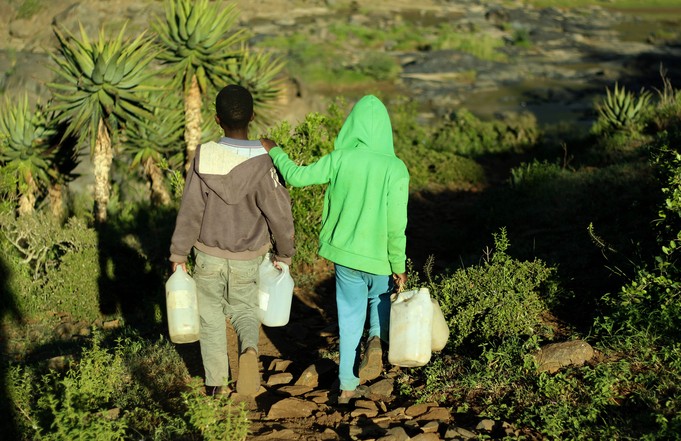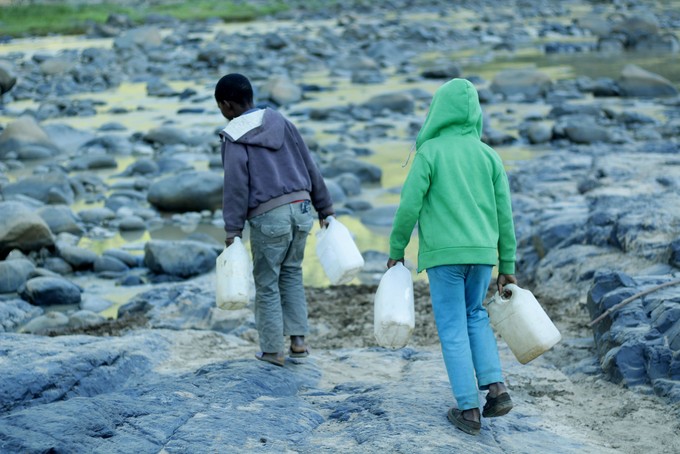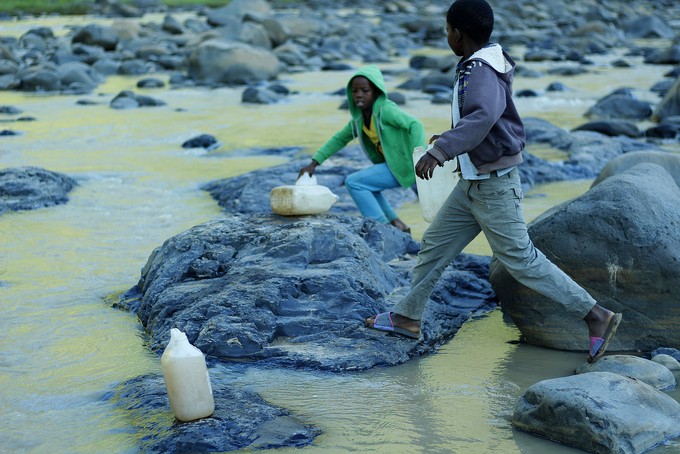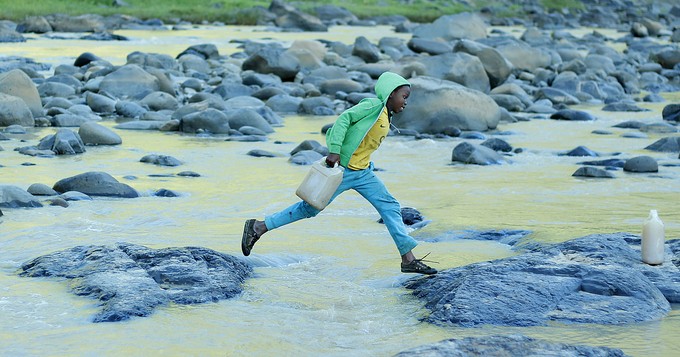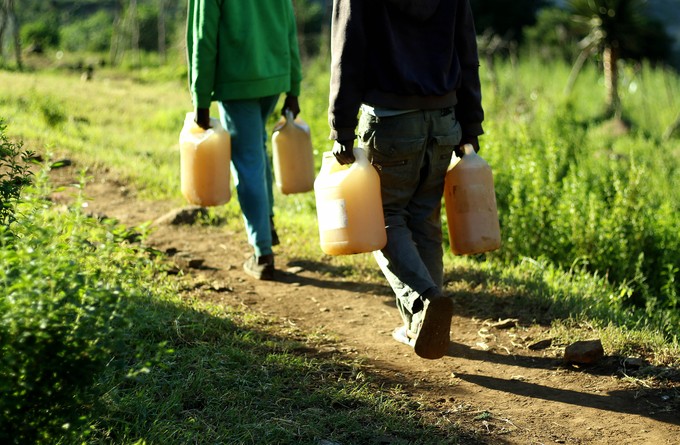Quest for water in an Eastern Cape village
In March I visited a village in Pondoland in the Eastern Cape for two weeks as part of GroundUp’s investigation into the province’s dagga trade.
I photographed how the people living in the village deal with water.
Homes are scattered across hills. As the photo below shows, water is available in a river running at the foot of the hill. People have to walk up and down the hill to transport water.
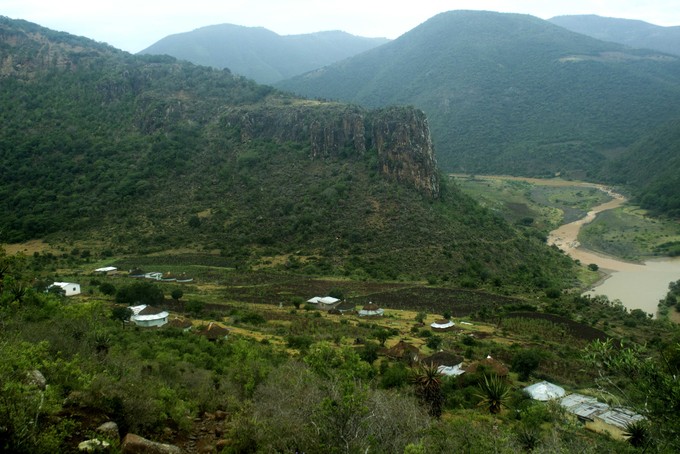
Each household has to get water from the river everyday, except when it rains. In the morning, women go down to the river to collect water. In the afternoon, children usually go. Clothes are washed directly in the river because people can’t waist the water that is carried up the hill to their homes.
The water is not boiled or purified. It is a brownish-orange colour. The people of the village complain that the water makes their children sick.
The river is lower than usual this year because there has been very little rain for the past few years.
These photos show two children, Ongezile Mkwehla and Siya Wandisa, fetching water.
Support independent journalism
Donate using Payfast

© 2016 GroundUp. 
This article is licensed under a Creative Commons Attribution-NoDerivatives 4.0 International License.
You may republish this article, so long as you credit the authors and GroundUp, and do not change the text. Please include a link back to the original article.

